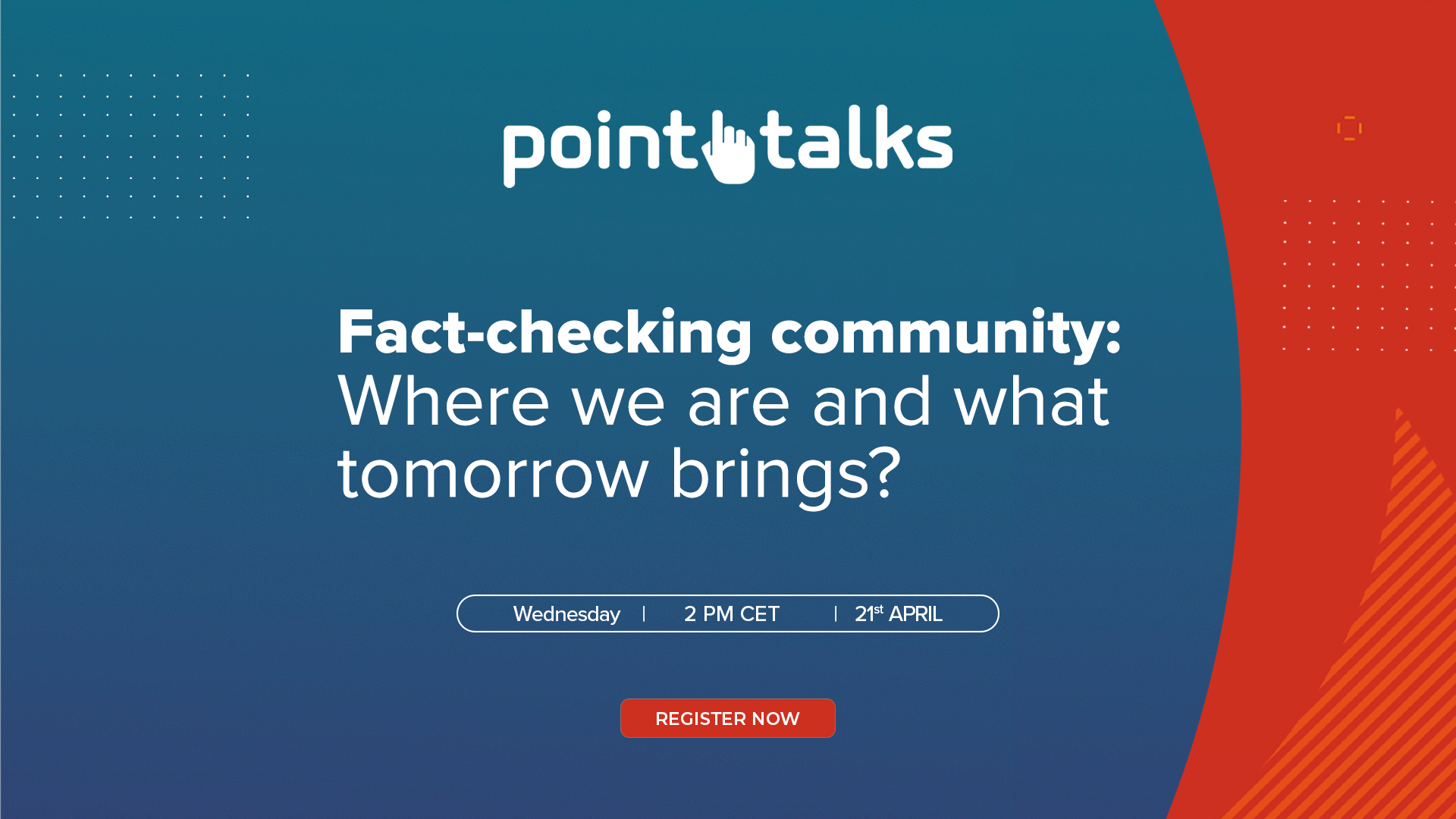Fact-checking community: Where we are and what tomorrow brings?
In the past year, fact checkers have been on the forefront of the fight against the Covid-19 infodemic, often pushing themselves beyond the limit to mount a response to dangerous health disinformation that is still putting people in danger worldwide.

But, while working tirelessly to respond to this unprecedented disinformation/health crisis, the fact-checking community is also rethinking its own place in various information ecosystems, both local and international. Are we a separate “branch” within the broader media industry and what should be our relationship with other relevant actors, like the internet companies, publishers and regulators? How do we think about sustainability in the “new normal” that comes with many economic insecurities? Finally, this common enemy we all now have – this harrowing health infodemic – did not erase the differences in our local contexts, where some fact checkers are still less safe, less equipped to handle new challenges and less included in global trends than others.
A lot of these questions come down to how we proceed to build our relationship with each other and organize as a community. So, how do we continue to work and network in the “new normal”? What’s the place of global, local and regional alliances in the fact-checking world? And what are the foundations we currently have to build upon in order to figure that out?
Our “Fact-checking community: Where we are and what tomorrow brings?” panel at Point Talks, moderated by Tijana Cvjetićanin, brings together some of the leaders in the fact-checking community, including Baybars Örsek, Phoebe Arnold, Tasha Sokolova, Ana Brakus and Gemma Mendoza, who will discuss these issues.
Baybars Örsek is the director of the International Fact-Checking Network, a global coalition of fact-checking organizations, at The Poynter Institute.
Phoebe Arnold is Partnerships Manager at Full Fact, working with the international fact checking community on disinformation policy and research projects.
Tasha Sokolova is a journalist from Russia, working as a fact-checker on Russian fact-checking project “Provereno Media”.
Ana Brakus is the managing editor of Faktograf.hr, the only fact-checking media in Croatia.
Gemma Mendoza is one the pioneers at Rappler, a digital media company in the Philippines.
Tijana Cvjetićanin has been the co-creator, editor and author of two fact-checking platforms in Bosnia and Herzegovina: Istinomjer, set up in 2010, and Raskrinkavanje, set up in 2017.
Full biographies of speakers can be found HERE.
To follow this panel discussion via Zoom please register HERE.
You will be able to follow this session also through Point Talks platform (HERE), and via FB live stream on pointconference page.
Participants can check-in on FB event, and they will get a notification before the live event starts – HERE
We are very proud to have them and to invite you all to join the conversation!
*After a year of the pandemic in which we, unfortunately, could not have the conference in the traditional way, POINT is coming back in 2021 in a new online format – “POINT Talks”. We want to ensure that the POINT initiative continues to live and grow until all the conditions are met to organize the live POINT Conference. During previous editions of the POINT conference, electoral processes and elections in many countries have been the focus of numerous presentations and panel discussions, so we decided to make this topic the first topic of the month at POINT Talks.